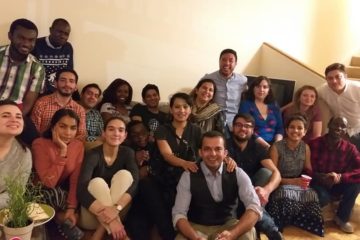We (Atlas Corps Fellows) get to the US and one of the first things we are presented with at the orientation week is the Culture Shock idea.
For me, culture shock is not a new concept. Luckily, I am well familiar with American culture. I respect people’s personal space; I remember to say “excuse me” and “thank you”; I do not cut lines; I stand on the right side on the escalator; I let people exit the bus or train before getting in; I volunteer; I go out for happy hour; I make sure I ask colleagues about their weekend.
I learned my lesson when I was 16. I was flying to the US for the first time in 2006. The flight attendant got very upset with me because apparently, I didn’t say “excuse me” when passing by him. He made sure to let me know that this is not the way to behave in the United States. So, I started paying attention.
When you live longer in one culture other than your own, it starts impacting your personality. You become part of that culture, you become a new person. And then you go home where you are expected to behave in a certain manner that is not common to your personality anymore. Somehow, you feel marginalized from your friends and family. Obviously, you haven’t become American, even if you feel strong ties to the country, and guess what, you are not “fully Georgian” anymore. So what are you?
You feel that you are stuck between two worlds, up in the air, somewhere above the Atlantic Ocean.
So, what do you do when this happens to you? Are you really a Bi-cultural now? Do you switch your personality based on your current location? Do you assume a new identity that’s a combination of both cultures? Do you just stick to one culture and not let the other impact you?
Honestly, I’m still figuring this out. The first step is to acknowledge that you may feel an ambiguity in your identity, feeling disoriented. It is normal. The next step would be to think thoroughly about who you are and who you want to become. For example, I have never liked being physically close to people, thus, the notion of respecting people’s personal space is in line with my personality. No matter where I am, in Georgia where people get so close to you that you can hear them breathing or in the US, when even in the crowded areas, people will avoid touching you, I am what I am; I respect people’s personal space and I don’t get to close to them.
To conclude my thoughts, the issue of cultural shock is not the only issue you will face. It goes deeper. Identity crisis is what you should be worried about. It is easy to get lost. This is why you must reflect on your actions, on your personality traits, and constantly try to be self-aware, improve and grow. In the end, you will become a better, reformed, Bi-cultural, SUPER person.



